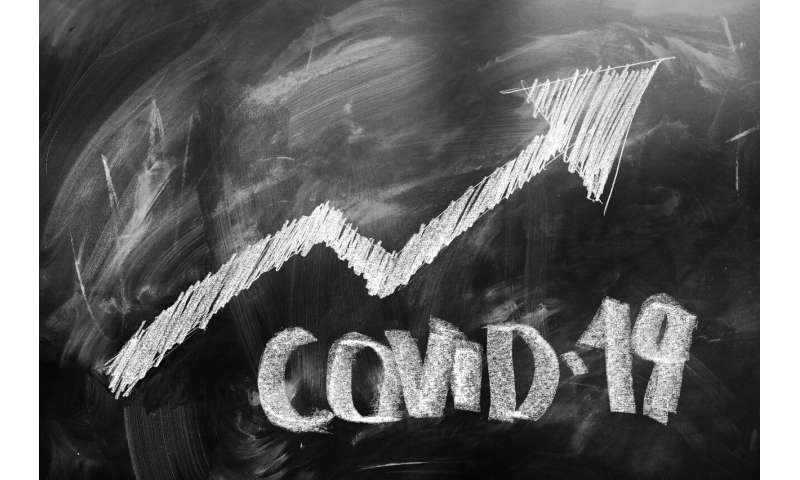
Chancellor Angela Merkel on Monday urged German regions with high coronavirus rates to tighten social contact restrictions before Christmas as the country struggled to slow a second wave of infections.
Long hailed as an example in the pandemic due to a far lower death rate than most of its neighbours, Germany has seen its infection levels plateau at a high level for more than a month.
Merkel’s spokesman Steffen Seibert told reporters that as a result, the government welcomed a move by Bavaria on Sunday to step up its shutdown rules and limit New Year’s Eve gatherings.
“These are worrisome days,” Seibert said, noting that infections rates “are not consistently going down” but rather rising in some areas and that Germany was “far from turning the corner”.
“It is obvious and also necessary for individual states to think about which measures they could use to curb new infections,” he said, calling Bavaria’s planned tightening from Wednesday “good and right”.
The eastern state of Saxony, coping with its own infections spike, followed suit with an announcement it would meet Tuesday to agree stricter rules.
Under Germany’s federal system, states are given leeway to set their own rules making coordinated action from the top more complicated.
Merkel’s economy minister Peter Altmaier acknowledged that at least parts of the country were going to need to take a tougher line.
“We can say and must say that our measures to date are insufficient to really break the second wave,” he said in remarks reported by news agency DPA.
Christmas exemptions questioned
Seibert noted that Merkel and Germany’s 16 state premiers had “specifically agreed” that regional governments could go beyond national guidelines if conditions demanded it.
Although they are not scheduled to have another meeting to assess country-wide rules until January 4, Seibert said such a meeting was possible again “at any time” in the run-up to Christmas if deemed necessary.
Under a so-called “lockdown light”, German cultural and sporting facilities as well as restaurants and bars have been shut since early November, with public gatherings limited—but schools and shops remaining open.
Merkel and the state leaders agreed last week to extend those restrictions until January 10, while allowing some exceptions for gatherings at Christmas and New Year of up to 10 people.
Several officials have now questioned those holiday exceptions.
Gerald Gass, head of the association of German hospitals (DKG), warned of possible shortages in intensive care units, in comments to business daily Handelsblatt.
More people getting together over the year-end holidays would likely “lead to a rise in infections, with consequences for hospitals”, he said.
“On the basis of the current situation, I urgently warn against maintaining the planned exceptions,” he said.
And the head of the parliamentary group for Merkel’s Christian Democratic Union party, Ralph Brinkhaus, said hotspots should seriously reconsider the 10-people threshold, calling it “highly risky”.
ICUs filling up
Bavarian premier Markus Soeder on Sunday announced tougher measures including local curfews and partial school closures in the southern state.
He said while the rules on group sizes would be relaxed over Christmas, just five adults from two households would be allowed to celebrate New Year’s Eve together.
Germany’s Robert Koch Institute (RKI) disease control centre reported 12,332 new COVID-19 infections within 24 hours on Monday, with numbers generally lower at the start of the week due to a weekend lag in reporting.
The number of COVID-19 patients in intensive care nationwide has soared to more than 4,000 from just over 360 in early October.
Source: Read Full Article
